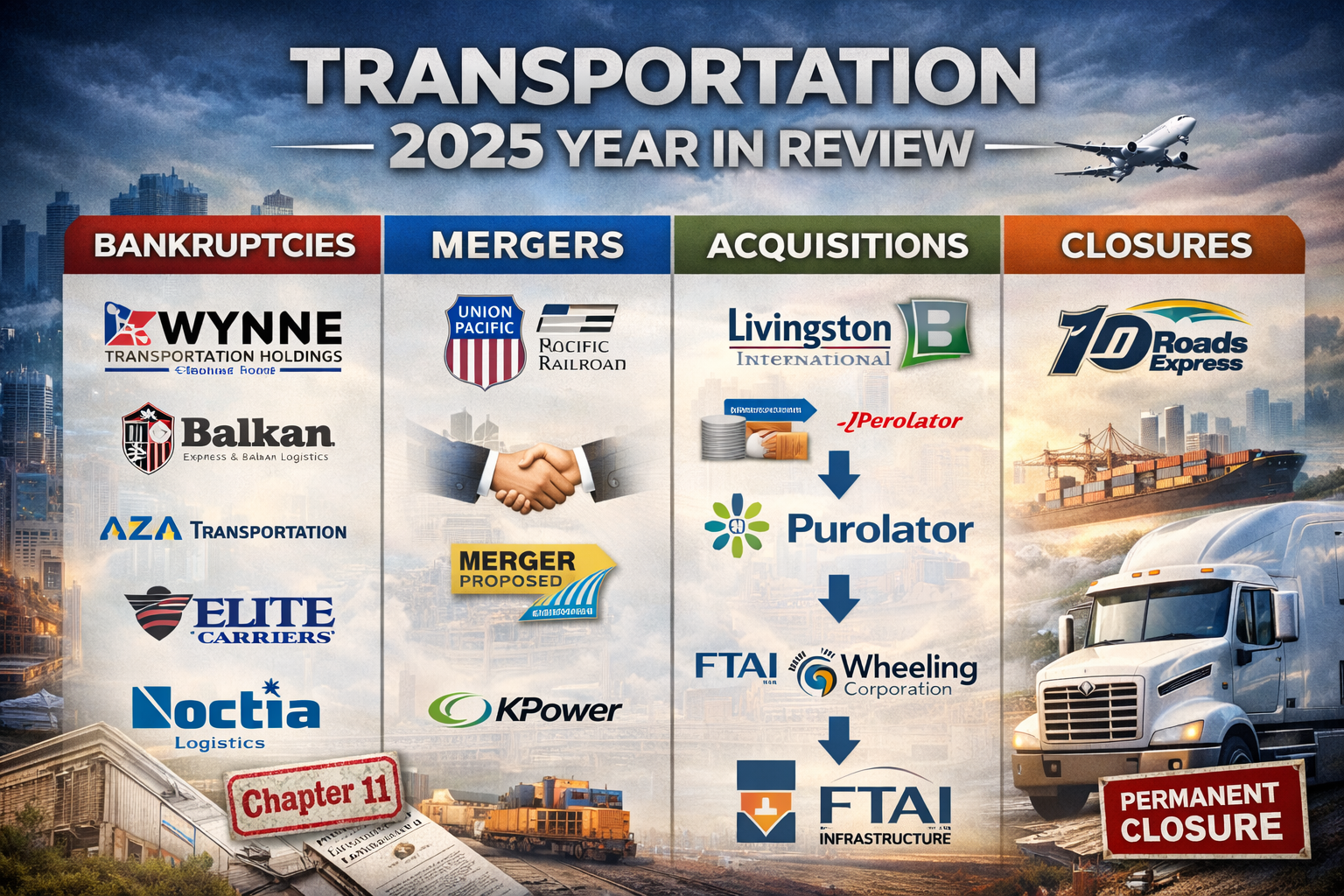How to Identify Overpaid Taxes in Your Fleet Operations
Share this Article:
Identifying
overpaid taxes in fleet operations can unlock valuable resources for reinvestment and growth. Complex regulations, multiple jurisdictions, and frequent operational changes often cause companies to remit more than required. Recognizing where unnecessary costs occur helps transportation businesses manage costs, improve compliance, and strengthen financial planning. A focused approach also positions fleet managers to prevent future errors and reclaim funds that rightfully belong to the operation.

Common Areas Where Overpayments Occur
In fleet operations, extra tax costs often stem from routine transactions that go unchecked. These aren’t always the result of major errors. Small missteps repeated across states, assets, or vendors add up over time. Knowing where to look is the first step toward recovery, and understanding these areas helps companies reclaim funds, improve compliance, and strengthen overall financial efficiency across their operations.
- Fuel Tax Reporting: Misclassified miles or incorrect jurisdictional splits can inflate liability.
- Sales and Use Tax: Paying tax on exempt parts, equipment, or repair services is common.
- Vehicle Registrations: Duplicate fees or incorrect classifications during renewals often go unnoticed.
- Asset Depreciation: Tax schedules that don’t align with operational records may lead to overstatements.
- Permitting Fees: Paying avoidable state or local charges during expansions or relocations.
Key Indicators You May Be Overpaying Taxes
Recognizing signs of tax overspending can be challenging, especially when they are buried in day-to-day fleet operations. One key indicator is consistent discrepancies between tax filings and internal records, which may reveal that exemptions or credits are not being applied. Another sign is a sudden increase in tax liability that cannot be explained by operational growth or seasonal shifts.
Companies that operate in multiple states should also watch for mismatched jurisdictional reporting, since variations in rules can cause double payments. Frequent audits or recurring questions from state authorities may also point to reporting issues that need closer review.
Finally, when invoices from vendors routinely include tax charges on exempt items, it often signals that payment practices need to be reviewed. Addressing these issues quickly can reduce exposure, recover funds, and improve compliance across operations.
Sales and Use Tax: A High-Risk Area for Fleet Operations
Sales and use tax presents one of the greatest risks for fleet operations, largely because rules differ widely from state to state. Transactions that appear routine, such as purchasing replacement parts or contracting for services, can easily trigger tax exposure when misclassified. Small errors repeated across large fleets quickly accumulate into significant financial leakage, draining resources that could otherwise support growth and efficiency initiatives.
- Parts and Equipment Purchases: Items qualifying for exemptions are often taxed unnecessarily.
- Maintenance and Repair Services: Some jurisdictions exempt labor, while others do not.
- Leases and Rentals: Misapplied tax on leased vehicles or equipment is a common source of overpayment.
- Cross-Border Transactions: Purchases in one state used in another may create redundant obligations.
Tax Impacts of Fleet Growth and Operational Changes

Fleet growth and operational changes often lead to unexpected tax consequences. Expanding into new states can create additional filing responsibilities, and failure to track those obligations may result in avoidable payments. Adding vehicles or upgrading equipment can also cause errors in depreciation schedules, leading to overstated liabilities.
Operational changes such as outsourcing maintenance, switching leasing arrangements, or relocating hubs may alter how sales and use tax applies, particularly when exemptions are overlooked. Even something as routine as route changes can shift mileage apportionment, affecting fuel tax reporting and state obligations.
Without consistent monitoring, these developments can create a cycle of unnecessary burdens that drain resources from other priorities. Proactive reviews tied to business changes allow companies to minimize exposure and recover potential refunds.
Tools and Processes for Identifying Overpayments
Recovering excess payments requires a structured approach that combines internal controls, technology, and external expertise. Many transportation companies unknowingly leave money on the table because processes for review are inconsistent or reactive. Implementing reliable tools makes it easier to detect errors early, correct them quickly, and establish long-term practices that prevent recurring compliance problems across multiple jurisdictions and operational areas.
- Data Reconciliation: Compare tax filings to operational and financial records for discrepancies.
- Exemption Certificate Management: Keep updated documentation for all qualified purchases.
- Automated Tax Software: Use technology to flag inconsistencies in multi-state transactions.
- Vendor Invoice Audits: Review charges for sales tax applied to exempt goods or services.
- Specialized Tax Reviews: Engage industry-focused consultants to identify hidden overpayments and maximize recovery opportunities.
Avoiding Future Overpayments: Best Practices
Preventing avoidable tax losses requires a proactive approach that embeds strong controls into everyday fleet operations. Without structured practices, even minor errors can snowball into significant liabilities. Companies that take preventive measures not only reduce exposure but also build a stronger foundation for financial stability and improved compliance across multiple jurisdictions.
Regular Internal Reviews
Compare tax filings to operational data quarterly to catch early discrepancies.
Employee Training
Educate staff handling invoices and tax filings on exemptions and multi-state rules.
Centralized Documentation
Maintain organized records for exemption certificates, permits, and asset details.
System Updates
Keep tax software and reporting systems aligned with changing state regulations and requirements.
Annual External Audits
Engage independent tax professionals to validate internal processes and identify overlooked risks or recovery opportunities.
How Transportation Tax Consulting Adds Value
Transportation Tax Consulting helps companies uncover and recover excess payments while building stronger compliance processes for the future. Our team reviews filings, exemption documentation, and vendor invoices to identify errors that often go unnoticed internally. We also evaluate multi-state operations, where complex jurisdictional rules frequently create exposure or duplication of payments.
Beyond
recovery, our
services focus on preventing future overpayments through structured planning, employee education, and system improvements. For companies without an internal tax department, our expertise fills that gap, offering specialized knowledge in sales and use tax, fuel tax, and fleet-related compliance. With decades of experience in the transportation sector, we provide tailored strategies that protect resources and allow companies to focus on operational growth.
Don’t let overpaid taxes drain valuable resources from your fleet.
Schedule a consultation with Transportation Tax Consulting today and start recovering funds while building a stronger tax strategy for the future.
Share with Us:




